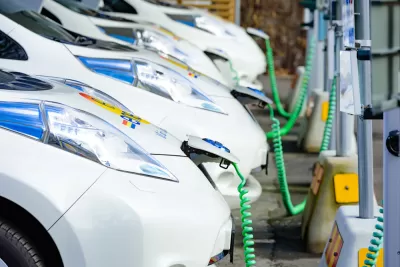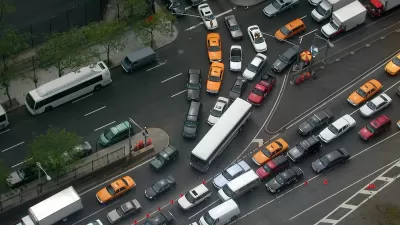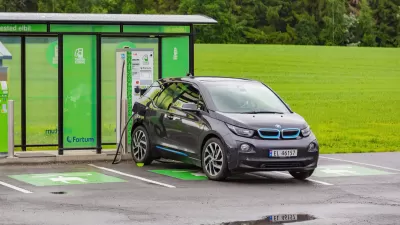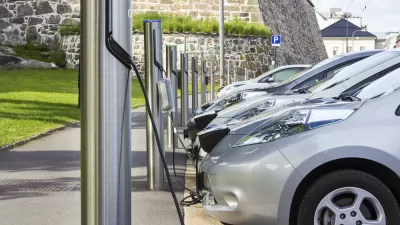Lower-income households often lack the resources to buy electric cars, signaling a need for a more holistic approach to improving mobility and lowering transportation costs.

A new report from the Transportation Energy Institute suggests that an equitable approach to transportation must include more than just a shift to electric cars. “The report also notes that lower-income communities often face multiple transportation-related environmental issues, such as proximity to highways and industrial pollution.”
As Dan Zukowski explains in Smart Cities Dive, “Access to electric vehicle charging equipment and the high cost of EVs limits low-income households’ ability to take advantage of these lower-emission vehicles, the paper says, and many depend on conventionally fueled vehicles.” Thus, lower-income communities need investment in public transit and other mobility options that can reduce their transportation costs and offer more sustainable options.
“Direct, meaningful engagement with such communities enables residents to have a say in the transportation policies and projects that could address their specific needs, [the report] says.” The report provides a set of questions that policymakers can use to better understand their communities’ needs and bridge gaps in access to transportation.
FULL STORY: Are EVs the best approach to transportation equity? Maybe not, TEI report says

Trump Administration Could Effectively End Housing Voucher Program
Federal officials are eyeing major cuts to the Section 8 program that helps millions of low-income households pay rent.

Planetizen Federal Action Tracker
A weekly monitor of how Trump’s orders and actions are impacting planners and planning in America.

Ken Jennings Launches Transit Web Series
The Jeopardy champ wants you to ride public transit.

Crime Continues to Drop on Philly, San Francisco Transit Systems
SEPTA and BART both saw significant declines in violent crime in the first quarter of 2025.

How South LA Green Spaces Power Community Health and Hope
Green spaces like South L.A. Wetlands Park are helping South Los Angeles residents promote healthy lifestyles, build community, and advocate for improvements that reflect local needs in historically underserved neighborhoods.

Sacramento Plans ‘Quick-Build’ Road Safety Projects
The city wants to accelerate small-scale safety improvements that use low-cost equipment to make an impact at dangerous intersections.
Urban Design for Planners 1: Software Tools
This six-course series explores essential urban design concepts using open source software and equips planners with the tools they need to participate fully in the urban design process.
Planning for Universal Design
Learn the tools for implementing Universal Design in planning regulations.
Heyer Gruel & Associates PA
Ada County Highway District
Institute for Housing and Urban Development Studies (IHS)
City of Grandview
Harvard GSD Executive Education
Toledo-Lucas County Plan Commissions
Salt Lake City
NYU Wagner Graduate School of Public Service





























